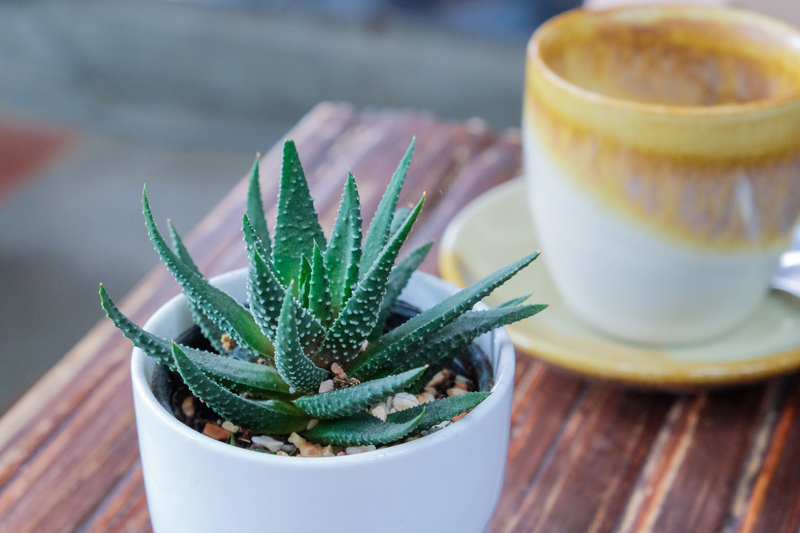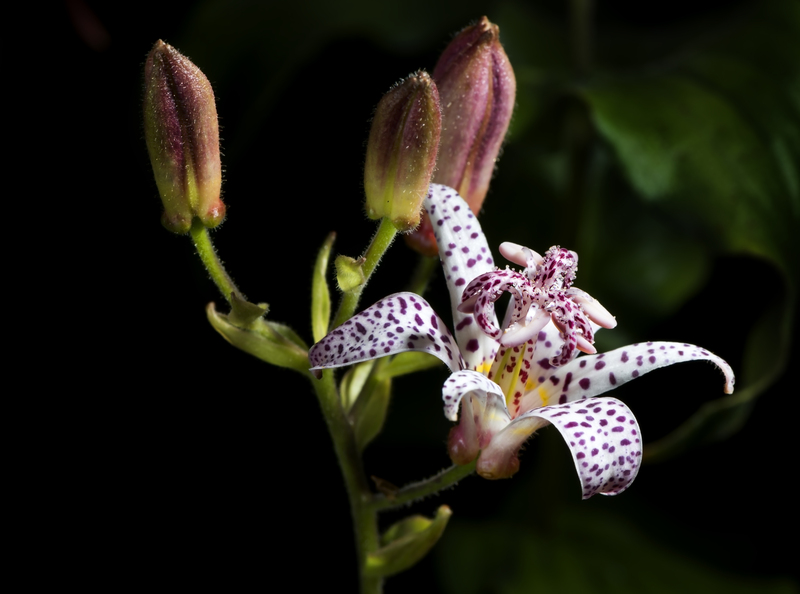Effective Weed Management: Top 3 Tips Revealed
Posted on 13/09/2025
Effective Weed Management: Top 3 Tips Revealed
Weeds can be the bane of every gardener's existence. Effective weed management is not only about improving the aesthetics of your garden or farm, but it is also essential for the health and productivity of the plants you actually want to grow. Whether you own a small backyard garden or manage acres of agricultural fields, understanding the most efficient weed control strategies is vital. In this comprehensive article, we'll cover the top three weed management tips, delve into their scientific background, and provide practical steps for implementation. Read on to discover the secrets to achieving a weed-free, thriving landscape.
Why Effective Weed Management Matters
Weeds are more than just unsightly intruders; they compete with desired plants for water, light, and nutrients. Unchecked, they can harbor pests and diseases, lower yields, and increase the time and labor required for maintenance. Below, discover why managing weeds efficiently is a cornerstone of successful gardening and farming:
- Resource Competition: Weeds can outcompete crops for vital resources.
- Disease Reservoirs: Many weeds act as hosts for plant pathogens and insects.
- Reduced Crop Quality: Weeds directly impact the quantity and quality of produce.
- Aesthetic Impact: In lawns and landscapes, uncontrolled weeds spoil appearance and value.

Understanding Weeds: A Brief Overview
It's essential to recognize that not all weeds are created equal. The first step in weed control is to correctly identify the types of weeds you're dealing with:
- Annual Weeds: These complete their life cycle in just one season. Quick removal is crucial.
- Perennial Weeds: These live for more than two years and can regrow from roots or stems, making them more challenging to eliminate.
- Biennial Weeds: These weeds live for two years and can be particularly persistent in certain regions.
Understanding your local weed species and their growth patterns will inform the best weed management strategies for your situation.
Top 3 Tips for Effective Weed Management
1. Practice Preventive Weed Management
An effective weed management plan always starts with prevention. The goal is to stop weeds before they become a problem. Here's how:
- Mulching: Apply organic or inorganic mulch around your plants. A 2-3-inch layer of mulch blocks sunlight, preventing weed seeds from germinating. Choose organic options like shredded bark, leaf mold, or straw for added soil benefits.
- Landscape Fabric: A barrier placed under mulch, this physical block is perfect for garden beds. Ensure fabric overlaps and is securely anchored to discourage weeds from sneaking through gaps.
- Dense Planting: Plant desirable plants close enough together so they can naturally shade the soil. Dense planting makes it harder for weeds to get established by minimizing open space and light.
- Healthy Soil: Soil rich in nutrients encourages the robust growth of your wanted plants, making it more difficult for weeds to compete. Regularly add compost and test your soil to maintain its balance.
- Weed-Seeds Hygiene: Be careful not to introduce weed seeds. Clean garden tools and avoid using compost or soil from weedy areas.
Prevention is far easier and less labor-intensive than constant weeding. With smart strategies, you can keep your garden or farm virtually weed-free with minimal intervention.
2. Mechanical and Manual Weed Removal
When weeds do appear, quick action is key. Utilizing both manual and mechanical methods ensures that weeds are removed efficiently, and their spread is kept in check.
- Hand Weeding: This timeless technique remains effective for small gardens and in tight spaces. Pull weeds after rain, when the soil is moist, to get the whole root system.
- Hoeing: A sharp hoe is your friend for early weed control. Run the hoe just under the soil surface to cut off weeds before they establish deep roots. Do this regularly during the growing season.
- Flame Weeding: Especially effective on paths and driveways, using a flame weeder can kill weeds without using chemicals. Take care to follow all safety instructions.
- Cultivation: Regular soil cultivation with the right equipment helps to disrupt weed growth, particularly in commercial settings.
- Tip: Always remove weeds before they flower and go to seed, as a single weed plant can produce thousands of seeds!
Consistency is crucial. Set a weekly reminder to check your garden or fields, and make quick work of any new weed growth. Over time, you'll notice a significant drop in weed pressure.
3. Integrated Chemical and Organic Weed Control Methods
Sometimes, even the best prevention and mechanical removal aren't enough, especially in large spaces. Here, judicious use of herbicides and alternative organic methods are considered as part of an integrated weed management approach.
- Select the Right Herbicide: Whether you're dealing with broadleaf, grassy, or perennial weeds, be sure to choose a product specifically designed for your problem. Read the label carefully for instructions and safety requirements.
- Spot Treatment: Rather than blanket application, target herbicides only to problem areas. This minimizes damage to desirable plants and reduces environmental impact.
- Organic Solutions: Consider options like vinegar-based sprays, boiling water, or corn gluten meal. These are generally less persistent in soil and safer around pets and children.
- Biological Controls: In some situations, introducing insects or livestock that consume weeds can be a powerful, natural solution.
Integrated weed management is the process of combining all three approaches--prevention, mechanical, and chemical/organic--into a single, thoughtful plan. This reduces reliance on any one method and helps prevent issues like herbicide resistance.
Pro Tips for Seasonal Weed Management
To maximize the impact of your weed management strategy, tailor your approach to each season:
- Early Spring: Get ahead of dormant seeds by applying pre-emergent controls and mulch before temperatures rise.
- Summer: Monitor for emerging weeds, especially after rainfall. Dense planting and consistent weeding are especially critical.
- Autumn: Remove late-season annuals before they seed. Prepare garden beds with mulch or cover crops to suppress winter weeds.
- Winter: Inspect perennial weeds and prepare for early action in spring.
Timing your interventions based on weed life cycles and local climate helps ensure long-term success and keeps weeds at bay year-round.
Common Mistakes to Avoid in Weed Control
- Letting Weeds Seed: Even a single neglected weed can multiply into hundreds.
- Using the Wrong Herbicide: Misapplied chemicals can kill your crops or ornamentals and harm the environment.
- Ignoring Perennial Roots: Some weeds regenerate from tiny root fragments left in the soil.
- Skipping Mulch Replenishment: Mulch breaks down over time--replace it annually for continuous protection.
- Underestimating Weed Pressure: Small weeds are easy to ignore, but they grow fast!
By steering clear of these common pitfalls, your weed management strategy will be stronger and more effective.

Frequently Asked Questions on Weed Management
- How often should I weed my garden?
Weekly inspections are best, with prompt removal. The more consistently you weed, the easier it will become over time. - What's safer: chemical or organic weed control?
Both have a place in modern weed management. Organic methods are usually safer for people and wildlife, but certain scenarios may require responsible chemical use. - Can mulching truly prevent weeds?
Absolutely! Properly applied mulch is one of the most reliable barriers against weed germination and growth. - Are there any ground covers that help suppress weeds?
Yes, plants like clover, creeping thyme, and certain ornamental grasses work as natural weed suppressors.
Conclusion: Achieve Long-Term Weed Control Success
Effective weed management doesn't have to be a frustrating battle. By focusing on prevention, acting quickly with mechanical or manual removal, and integrating both organic and chemical solutions when necessary, you can enjoy a healthy, productive, and beautiful landscape. Remember to adapt your strategy to local conditions, stay vigilant throughout the growing season, and combine multiple approaches for the best long-term results. With these top three tips for weed management revealed, it's time to take action and reclaim your garden or farm from invasive weeds--once and for all!
Ready to get started? Discover more in our related guides, and share your weed control successes and questions in the comments below!
Latest Posts
A beginner's guide to container gardening
Ultimate Must-Have Gardening Tools for Passionate Gardeners
Affordable and Easy Garden Tips for Low Maintenance



